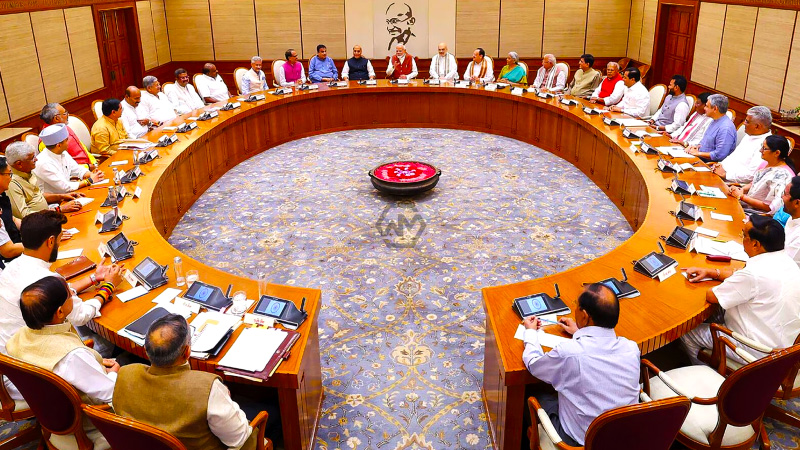- Ministers in Modi 3.0 Cabinet received their portfolios in sealed envelopes during the inaugural Cabinet meeting.
- Unlike previous terms, portfolio details were kept confidential until the meeting concluded, adding to the suspense.
- Key allies like JDU, TDP, Shiv Sena, and LJP secured ministerial positions, highlighting coalition dynamics.
As ministers gathered for the Modi 3.0 Cabinet’s first meeting, anticipation filled the air. Inside the meeting room, each minister found an envelope on their seat, containing the details of their assigned portfolios, a departure from past practices.
While speculation often precedes such announcements, this time secrecy prevailed until the very end. With the unveiling of portfolios post-meeting, the nation witnessed the composition of Modi’s new team, inclusive of key allies, emphasizing the collaborative nature of governance in India.
The Sealed Fate: Modi 3.0 Cabinet’s Portfolio Revelation
In a departure from tradition, ministers in the Modi 3.0 Cabinet were handed their portfolios in sealed envelopes during the inaugural meeting. This marked a shift from the previous leaks and speculations, adding an element of surprise to the proceedings. The sealed envelopes contained the assignments for each minister, including those of state, with details only being made public post-meeting. Notably, the inclusion of key allies in ministerial positions highlights the significance of coalition politics in the government’s stability.
The suspense surrounding the portfolio allocation in Modi 3.0 Cabinet finally came to an end as ministers received their assignments in sealed envelopes. This method, unique to this term, kept the details confidential until the Cabinet meeting concluded, adding to the intrigue. With key allies securing ministerial positions, the Modi government showcases its commitment to maintaining a strong coalition for effective governance.
In a departure from tradition, ministers in the Modi 3.0 Cabinet were handed their portfolios in sealed envelopes during the inaugural meeting. This marked a shift from the previous leaks and speculations, adding an element of surprise to the proceedings. The sealed envelopes contained the assignments for each minister, including those of state, with details only being made public post-meeting. Notably, the inclusion of key allies in ministerial positions highlights the significance of coalition politics in the government’s stability.
The suspense surrounding the portfolio allocation in Modi 3.0 Cabinet finally came to an end as ministers received their assignments in sealed envelopes. This method, unique to this term, kept the details confidential until the Cabinet meeting concluded, adding to the intrigue. With key allies securing ministerial positions, the Modi government showcases its commitment to maintaining a strong coalition for effective governance.
“The envelope revelation in Modi 3.0 Cabinet signifies a shift towards confidentiality, adding suspense to the ministerial allocations.”



